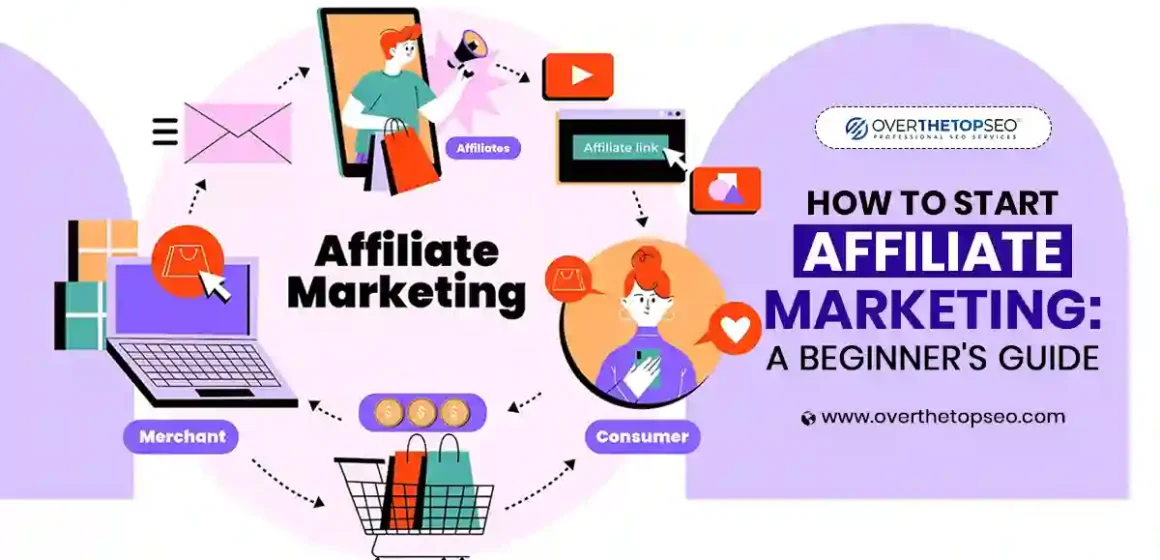In the dynamic world of online commerce, businesses are constantly seeking innovative ways to expand their reach and boost sales. One such avenue that has gained immense popularity is Affiliate Marketing. It’s like having an army of enthusiastic partners promoting your products or services, and together, you’re on a journey towards online sales growth. Let’s dive deep into the world of Affiliate Marketing and explore how it can be a game-changer for your business.
Imagine this scenario: You have a fantastic product or service ready to hit the digital shelves, but the challenge lies in reaching your target audience effectively. This is where Affiliate Marketing swoops in like a superhero. It’s a partnership where individuals or entities (affiliates) promote your products or services in exchange for a commission on sales generated through their efforts. It’s not just about boosting your sales; it’s also about building a network of advocates who genuinely believe in what you offer.
So, what exactly is Affiliate Marketing, and how can it help your business achieve online sales growth? Let’s embark on this journey together.
1. Understanding the Basics: Affiliate Marketing operates on a simple principle: you partner with affiliates who promote your products or services on their platforms. These affiliates can be bloggers, social media influencers, website owners, or even businesses with complementary offerings. They use unique tracking links or codes to monitor their referred traffic and sales.
2. Setting the Right Terms: Successful Affiliate Marketing begins with setting clear terms and conditions. This includes defining the commission structure, cookie duration (the period during which affiliates can earn commissions), and any promotional guidelines. Clarity is key to establishing trust with your affiliates.
3. Selecting the Right Affiliates: Finding the right affiliates is akin to building a dream team. Look for partners whose target audience aligns with your product or service. Their authenticity and credibility play a crucial role in the success of your Affiliate Marketing program.
4. Equipping Affiliates: To empower your affiliates, provide them with the necessary tools and resources. This may include banners, promotional materials, product information, and exclusive discounts or offers for their audience.
5. Tracking and Attribution: Accurate tracking is the backbone of Affiliate Marketing. Employ affiliate tracking software or platforms that monitor referrals, clicks, conversions, and commissions. Ensure that affiliates have access to their performance data.
6. Transparency and Communication: Maintain open communication channels with your affiliates. Transparency regarding commissions, payouts, and performance metrics builds trust and fosters long-term partnerships.
7. Optimizing Landing Pages: The destination matters as much as the journey. Ensure that your landing pages are optimized for conversions. A seamless user experience increases the likelihood of turning visitors into customers.
8. Compliance and Regulations: Stay informed about relevant regulations, such as GDPR or FTC guidelines, and ensure that your Affiliate Marketing program complies with these rules. Clear disclosure of affiliate relationships is essential.
9. Testing and Optimization: Continuously evaluate the performance of your Affiliate Marketing program. Test different promotional strategies, commission structures, and affiliate partnerships to refine your approach.
10. Incentives and Rewards: Consider offering incentives or bonuses to high-performing affiliates. Recognize and reward their efforts to motivate them to drive even more sales.
Now, let’s delve into the substantial benefits that Affiliate Marketing can bring to your business in terms of online sales growth:
1. Exponential Reach: Through affiliate partnerships, your products or services can reach a vast and diverse audience. Each affiliate acts as a unique channel to promote your offerings, expanding your market reach significantly.
2. Performance-Based: Affiliate Marketing is inherently performance-based. You only pay commissions when affiliates successfully generate sales or desired actions. This ensures a positive return on investment (ROI).
3. Cost-Effective: Traditional advertising and marketing campaigns can be costly. Affiliate Marketing minimizes upfront expenses since you’re essentially outsourcing marketing efforts and paying on a results-oriented basis.
4. Credibility and Trust: Affiliates often have established credibility and trust with their audience. When they endorse your products or services, it carries more weight than traditional advertising, fostering trust in your brand.
5. Data-Driven Insights: The analytics and tracking tools used in Affiliate Marketing provide valuable insights into customer behavior, preferences, and conversion paths. This data can inform your overall marketing strategies.
6. Scalability: As your business grows, you can scale your Affiliate Marketing program accordingly. Expanding your network of affiliates allows you to reach even more potential customers.
7. Foster Brand Advocacy: Affiliates who are genuinely passionate about your offerings can become brand advocates. Their enthusiasm can extend beyond the Affiliate Marketing program, leading to long-term brand loyalty.
8. Global Presence: Affiliate partnerships can help you enter new markets and regions. Affiliates operating in different geographical areas can introduce your brand to a global audience.
However, it’s essential to acknowledge the challenges and considerations of Affiliate Marketing:
1. Quality Control: While affiliates can bring significant benefits, their promotional methods and messaging may not always align with your brand’s standards. Regular monitoring and communication are essential to maintain consistency.
2. Competition: Affiliates may promote products or services from multiple brands, leading to competition within your niche. To stand out, ensure your offerings and affiliate terms are competitive.
3. Fraud and Compliance: Be vigilant against fraudulent activities, such as click fraud or affiliate misconduct. Additionally, stay updated with changing regulations and adapt your program as needed.
4. Resource Investment: While Affiliate Marketing can be cost-effective, it still requires an investment in tracking software, affiliate management, and ongoing optimization efforts.
In conclusion, Affiliate Marketing is a potent strategy for achieving online sales growth through collaboration and partnership. It’s like having an army of dedicated salespeople who are compensated based on their performance. By understanding the fundamentals, selecting the right affiliates, equipping them with resources, and continuously optimizing your program, you can leverage Affiliate Marketing to expand your reach, boost credibility, and achieve significant growth in online sales. So, are you ready to embark on the journey of partnership and profitability?



Leave a Reply